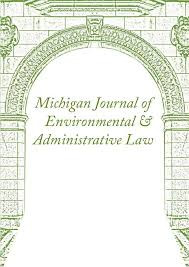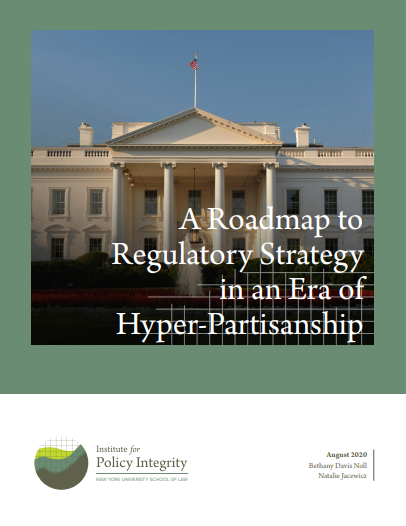-
Comments to EPA on Proposed Dust-Lead Pollution Rules
The Environmental Protection Agency (EPA) proposed revisions to dust-lead post-abatement clearance levels. We submitted comments emphasizing how EPA, itself, concedes that the economic analysis supporting the rule is inaccurate.
-
Comments to the New York PSC on Resource Adequacy
The Brattle Group developed a resource adequacy scenario analysis for the New York Public Service Commission (PSC), which is considering how to best meet its electricity generating capacity and resource adequacy needs. We submitted comments encouraging the PSC to consider several questions that Brattle’s analysis does not examine in depth.
-
Amicus Brief in D.C. Circuit on Landfill Methane Delay Rule
The Environmental Protection Agency (EPA) finalized a rule delaying compliance deadlines for methane emissions controls at solid waste landfills. We filed a brief in the U.S. Court of Appeals for the D.C. Circuit focusing on EPA's failure to adequately assess the forgone benefits of the delay.
-
Fighting for the Full Valuation of Climate Damages
As the climate crisis intensifies, it is crucial that we effectively contextualize and consider how policies affect our climate. We have worked hard to ensure that governments, regulators, and courts account for the social cost of carbon in policy and decisionmaking—and a string of recent policy outcomes has created positive momentum.
-

Implementing NEPA in the Age of Climate Change
Published in the Michigan Journal of Environmental & Administrative Law
Under the National Environmental Policy Act, agencies must consider the environmental impacts of major federal actions before they can move forward. But agencies frequently downplay or ignore the climate change impacts of their projects in NEPA analyses, citing a slew of technical difficulties and uncertainties. This article, published in the Michigan Journal of Environmental & Administrative Law, aims to highlight best practices so that agency offices can learn from one another, fulfill NEPA’s mandate, and begin to provide leadership in the fight against climate change.
-
A Roadmap to Regulatory Strategy in an Era of Hyper-Partisanship
This report discusses how an administration that begins a new term can navigate regulatory strategy. It offers advice on navigating this terrain for White House officials, the Office of Information and Regulatory Affairs, transition teams at agencies, and advocates. The report also contains a section on how an incoming administration can roll back the prior administration’s rules if there is an inter-party transition.
-
BLM Cancels Oil and Gas Lease Sale in Utah’s Moab Region
The Bureau of Land Management (BLM) announced its decision to exclude 87,000 acres of public lands from an upcoming lease sale, agreeing with arguments raised by policymakers and environmental advocates, including Policy Integrity, that these public lands are too valuable for other uses to be designated for fossil fuel extraction.
-

Markets, Externalities, and the Federal Power Act: The Federal Energy Regulatory Commission’s Authority to Price Carbon Emissions
Article revised for the Environmental Law Reporter
This article, excerpted from Davis Noll and Unel’s article in the NYU Environmental Law Journal, provides a comprehensive economic framework to show that addressing the CO2 externality through a carbon price falls within FERC’s authority to ensure an efficient market.
-
Comments to New Jersey on Cost Test Straw Proposal
The New Jersey Board of Public Utilities (BPU) asked for comments on its straw proposal for the benefit-cost test that BPU would employ pursuant to the 2018 Clean Energy Act, which requires energy efficiency and peak demand reduction programs to satisfy a benefit-cost test. We submitted comments encouraging BPU to include avoided greenhouse gas emissions among the non-energy benefits it credits to energy efficiency and peak demand reduction projects. We also suggest that BPU adopt a tool and methodology for assessing the benefit of avoided local air pollutants that is more sensitive than those identified in the proposal.
-
Comments on Test Procedures for Vehicle Emissions
The Environmental Protection Agency (EPA) proposed a rule adjusting the test procedures to calculate greenhouse gas emissions and fuel economy rates for the GHG and CAFE programs and the Fuel Economy and Environment Label upon adoption of Tier 3 certification test fuel. We submitted comments that encourage EPA to finalize the proposal, and explain that EPA would be required to provide a new proposal, rationale, and analysis if it chooses to forgo the GHG emissions test adustment.






